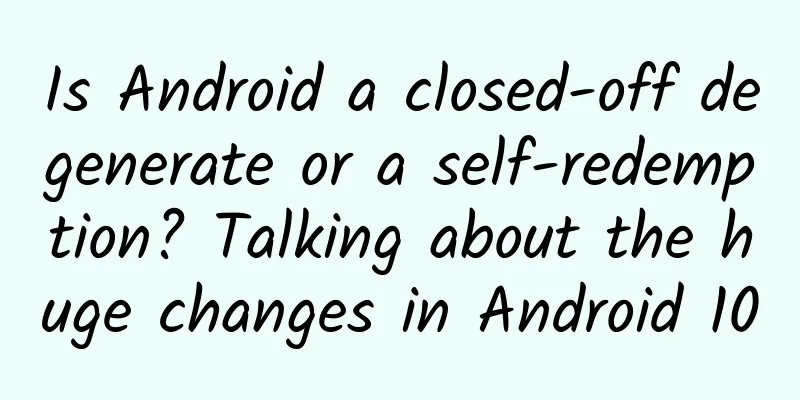Fruits that taste sour may contain high sugar content? Can people who control their sugar intake still eat them?

|
When it comes to fruits, many people think of health. You should eat fruits to lose weight, to keep fit, and to work overtime... But many people have many misunderstandings about fruits. For example, they think that eating fruits is healthy and they can eat as much as they want, especially those fruits that are not very sweet, and they can eat them without any scruples. However, does eating more fruit mean better health? Can we eat as much fruit as we want as long as it is not very sweet? Part 1 Can you eat non-sweet fruits? Most fruits are sweet and delicious. Many people believe that the sweeter the fruit, the more sugar it contains. Fruits that are not sweet must contain less sugar and can be eaten freely. In fact, the feeling in your mouth cannot accurately determine how much sugar a fruit contains. The sweetness of fruit is indeed related to sugar, but sugar is not the only determining factor. The type of sugar, the sourness and bitterness of the fruit can all affect the taste of the fruit. If a fruit with a high sugar content is more sour, you will still find it sour. For example, pineapple has almost twice the sugar content of strawberry, but you will find it more sour than strawberry. Image from: freepik.com In addition, the sweetness of fruits is not all due to sugar. The polyols and sugar derivatives in fruits are also sweet. Although some fruits are not so sweet, they still have high energy. For example, avocados have a high fat content and eating too much will easily make you fat. Therefore, whether a fruit tastes sweet or not cannot be absolutely equated with its sugar content, and fruits that are not sweet may not be eaten freely. Image from: freepik.com Part 2 Is the fruit sweet because it is injected with saccharin? Many people also believe that fruits are becoming sweeter because fruit farmers and merchants inject sugar water or saccharin into the fruits. Is this true? In fact, it is unlikely that "injecting sugar water or cyclamate into fruits to make them sweeter" will happen. First of all, fruits have a complete physiological structure, and it is difficult for foreign substances to be evenly dispersed in the flesh, which can easily cause uneven taste and bad taste. More importantly, injections are not only time-consuming and laborious, but also leave needle holes that are easy to be discovered. The flesh near the needle holes is also more likely to rot and deteriorate, which is not conducive to the preservation of the fruit. For fruit farmers and fruit vendors, injecting fruits is not worth the cost. On the other hand, sweeteners such as sugar water and saccharin are actually safe if used reasonably and will not cause us any harm. Image from: freepik.com Part 3 Can diabetics eat sweet fruits? Because fruits are very sweet, many patients with high blood sugar and diabetes dare not eat fruits. In fact, the glycemic index of most fruits is not high, and the glycemic load is generally low. People with diabetes can eat fruit in moderation. The "Guidelines for the Prevention and Treatment of Type 2 Diabetes in China (2020 Edition)" believes that the diet of diabetics should still follow the principle of a balanced diet, and fruit is also part of a balanced diet. The American Diabetes Association believes that diabetics can eat fruit. In the dietary recommendations they provide for diabetic patients, they also recommend eating more fruits and vegetables, and eating fruits and vegetables of various colors. Image from: freepik.com Part 4 Is pure fruit juice healthier? Compared to eating fruits directly, many people prefer to drink freshly squeezed juice and pure juice. However, I would like to remind everyone to drink less pure juice and try to eat fruits directly. Compared with fresh fruits, dietary fiber and some nutrients are removed during the juice making process, and the vitamin C and antioxidants are severely lost. The sugar in juice is "free sugar", which is quickly digested and absorbed by the human body, so it is easy to drink more. Eating a whole apple is quite filling, but drinking a bottle of apple juice is very easy, and a bottle of apple juice is about the same as 3-4 apples. For this reason, the American Academy of Pediatrics (AAP) recommends that babies under one year old should not be given fruit juice. Babies over six months old can eat fruit puree directly, and children over one year old should also limit their intake of fruit juice. In general, fruit juice is not as healthy as everyone thinks. Don't be superstitious about the health effects of fruit juice. If you have fruit to eat, you should try to eat the whole fruit. When there is really no fruit to eat, it is recommended to drink pure fruit juice, but don't drink too much. Image from: freepik.com Part.5 Does eating dried fruits make you gain weight more easily? Dried fruits have also been a very popular snack in recent years, but many people worry that they will gain weight if they eat too much. In fact, dried fruit is a product made by dehydrating and drying fruits. Compared with fresh fruits, it is simply dehydrated, and most of the nutrients such as dietary fiber, vitamins, minerals, plant antioxidants, etc. are retained and concentrated. So, from this perspective, dried fruit is healthy. A recent study found that eating dried fruit may reduce the risk of cancer. Researchers at the University of Missouri in the United States meta-analyzed the relationship between dried fruit intake and cancer. The study included 9 cohort studies and 7 case-control studies. The results showed that eating dried fruit was associated with a reduced risk of cancer. People who eat 3-5 servings of dried fruit per week have a 24%, 49% and 65% lower risk of precancerous colorectal polyps, prostate cancer and pancreatic cancer, respectively. We need to remind everyone that you should try to choose dried fruits without any additives. Nowadays, many dried fruits contain added sugar, which is not very healthy. Image from: freepik.com Part 6 How to eat fruit healthily? Fruits are rich in minerals and vitamins that the human body needs, and they are of great significance to human health. A large number of studies have confirmed that eating more fruits is good for health. How to eat fruits healthily? (1) Give priority to eating whole fruits. Try to eat whole fruits. If fresh fruits, 100% juice, unsweetened dried fruits, frozen fruits are also OK. Drinking juice needs to be moderate, and at most only half of all fruits. (2) Eat a variety of fruits. Try to eat different kinds of fruits and change them around, such as strawberries, bananas, tangerines, cherry tomatoes, oranges, cantaloupes, etc., to increase the variety of food. Image from: freepik.com (3) Eat in moderation; don’t eat too much. Fruits generally have a high sugar content, so from the perspective of a balanced diet, you should not eat too much. my country's dietary pyramid recommends eating 200-400 grams of fruit a day. It is recommended that you follow the recommendations of the dietary pyramid and eat fruit in a reasonable and diversified manner. When eating fruits during pregnancy, you should be careful not to eat too much, because high blood sugar during pregnancy is not good for the baby. Diabetics should try to choose fruits with low glycemic load, such as oranges, pears, strawberries, etc. (4) If eating cold fruit causes stomach discomfort, you can heat the fruit before eating. Some people feel uncomfortable eating fruits that are too cold, especially in winter, when they eat fruits that have just been taken out of the refrigerator. So, you can heat the fruits appropriately before eating, or put them in a warmer environment in advance to an acceptable temperature before eating. References: https://www.diabetes.org/healthy-living/recipes-nutrition/eating-well/fruit "Guidelines for the Prevention and Treatment of Type 2 Diabetes in China (2020 Edition)" Du H, Li L, Bennett D, et al. Fresh fruit consumption in relation to incident diabetes and diabetic vascular complications: A 7-y prospective study of 0.5 million Chinese adults. PLoS Med. 2017;14(4):e1002279. Published 2017 Apr 11. doi:10.1371/journal.pmed.1002279 Heyman MB, Abrams SA; SECTION ON GASTROENTEROLOGY, HEPATOLOGY, AND NUTRITION; COMMITTEE ON NUTRITION. Fruit Juice in Infants, Children, and Adolescents: Current Recommendations. Pediatrics. 2017 Jun;139(6):e20170967. doi: 10.1542/peds.2017-0967. PMID: 28562300. Hyson DA. A review and critical analysis of the scientific literature related to 100% fruit juice and human health. Adv Nutr. 2015 Jan 15;6(1):37-51. doi: 10.3945/an.114.005728. PMID: 25593142; PMCID: PMC4288278. Sadler MJ, Gibson S, Whelan K, Ha MA, Lovegrove J, Higgs J. Dried fruit and public health - what does the evidence tell us? Int J Food Sci Nutr. 2019 Sep;70(6):675-687. doi: 10.1080/09637486.2019.1568398. Epub 2019 Feb 27. PMID: 30810423. Valeri V Mossine, Thomas P Mawhinney, Edward L Giovannucci, Dried Fruit Intake and Cancer: A Systematic Review of Observational Studies, Advances in Nutrition, Volume 11, Issue 2, March 2020, Pages 237–250. Trichopoulou A, et al. Vegetable and fruit: the evidence in their favor and the public health perspective. Int J Vitam Nutr Res. 2003 Mar;73(2):63-9. doi: 10.1024/0300-9831.73.2.63. PMID: 12747212. Aune D, et al. Fruit and vegetable intake and the risk of cardiovascular disease, total cancer and all-cause mortality-a systematic review and dose-response meta-analysis of prospective studies. Int J Epidemiol. 2017 Jun 1;46(3):1029-1056. doi: 10.1093/ije/dyw319. PMID: 28338764; PMCID: PMC5837313. Wang DD, et al. Fruit and Vegetable Intake and Mortality: Results From 2 Prospective Cohort Studies of US Men and Women and a Meta-Analysis of 26 Cohort Studies. Circulation. 2021 Apr 27;143(17):1642-1654. doi: 10.1161/CIRCULATIONAHA.120.048996. Epub 2021 Mar 1. PMID: 33641343; PMCID: PMC8084888. Wallace TC, et al. Fruits, vegetables, and health: A comprehensive narrative, umbrella review of the science and recommendations for enhanced public policy to improve intake. Crit Rev Food Sci Nutr. 2020;60(13):2174-2211. doi: 10.1080/10408398.2019.1632258. Epub 2019 Jul 3. PMID: 31267783. Author: Ruan Guangfeng (Director of the Science and Technology Communication Department of the Kexin Food and Health Information Exchange Center, and Associate Research Librarian) Produced by: China Science Expo |
>>: If you always keep your head down, be careful of cervical spondylosis!
Recommend
The world's first mass-produced solar car has turned yellow? Maybe it never existed...
The world's first solar car went bankrupt jus...
12 classic keyboards in history
1. The two most widely used keyboards: QWERT &...
Is Apple going to provide an official ranking service? Maybe everyone is happy!
Perhaps in the near future, we will be able to se...
This kind of food will become smelly after eating, but many people not only eat it every day but also love it
After the beginning of summer, various midnight s...
Analysis report on short video competitors such as Kuaishou and Douyin!
This article conducts a multi-dimensional analysi...
China Passenger Car Association: Analysis of the national passenger car market in February 2022
1. Review of the national passenger car market in...
Shocked! The brown color in this painting is actually made by a mummy?
The painting below is by the artist Martin Drolli...
Why does the subway stop so accurately every time? How does the video outside the window move?
Source: A student tyrant (ID: bajie203) This arti...
Why do more people with lung cancer get worse in winter? How can lung cancer patients spend the winter safely? Pay attention to these 6 details
Winter is the most difficult season for lung canc...
Moto Z is priced lower than iPhone and will be launched in China in September
Lenovo Group held its second Global Technology In...
28 essential tools for new media operations in 2021!
What tools are needed for a complete campaign? On...
A dog that died on a laboratory table sparked a seven-year "war"
April 24th is World Laboratory Animal Day, commem...
How to plan a successful operation event (offline event version)
“Prerequisites for offline events : Small events:...
Food Safety | Acidic foods cause cancer? Alkaline foods are healthier? Don’t be misled by the “acid-base theory”
Acidic foods cause cancer, alkaline foods are hea...
Deadly drowning! The number one killer of children! How to identify the early signs of drowning?
The World Health Organization's report on dro...









